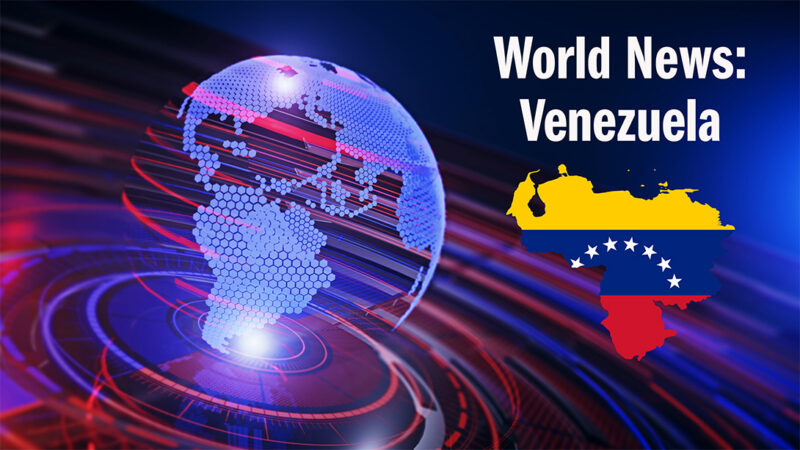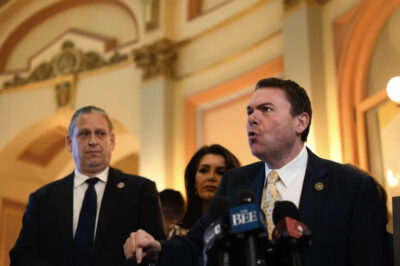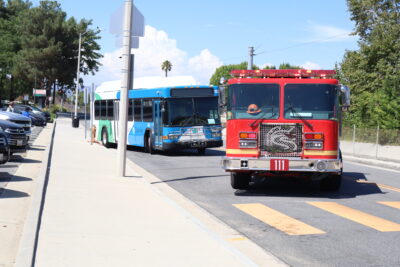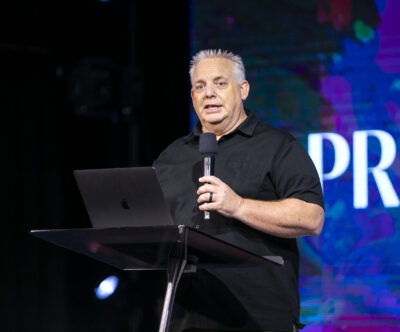By Bill Pan
Contributing Writer
Venezuela released a group of 13 political prisoners on Sunday, as the Trump administration stepped up pressure on Venezuelan President Nicolás Maduro’s regime.
The move came amid escalating tensions between Caracas and Washington, and U.S. military forces have deployed to waters off the coast of the South American nation in what officials described as a counternarcotics mission.
Eight detainees were freed outright, and five others were transferred to house arrest, according to Henrique Capriles, a prominent member of Venezuela’s opposition and two-time presidential candidate.
“Today, several families are reunited with their loved ones. We know that many remain, and we do not forget them; we continue fighting for all,” Capriles, who narrowly lost to Maduro in the highly disputed 2013 presidential election, said on X.
Among those released was Américo de Grazia, a key ally of María Corina Machado, the popular opposition leader barred by Maduro from running in the 2024 presidential election. That contest gave Maduro another six-year term despite the absence of ballot box-level results that would prove his proclaimed victory.
Another high-profile case involved Pedro Guanipa, brother of opposition lawmaker Juan Pablo Guanipa, who was arrested in May for allegedly plotting attacks ahead of Venezuela’s parliamentary elections. Pedro Guanipa is now under house arrest.
In July, Maduro agreed to free 10 American detainees and dozens of Venezuelan political prisoners in exchange for the return of 250 Venezuelan nationals who had been deported to and held in a maximum-security prison in El Salvador.
The swap was the result of “months of negotiations” involving both U.S. and Salvadoran officials, according to Salvadoran President Nayib Bukele.
The latest prisoner release coincided with the deployment of a U.S. armada consisting of three Arleigh Burke-class guided-missile destroyers, a submarine, and additional naval assets, along with amphibious assault warships carrying 4,000 Marines.
The White House described the operation as part of President Donald Trump’s campaign against international drug cartels responsible for the flow of narcotics into the United States.
U.S. officials accuse Maduro of personally directing the Cartel de los Soles, also known as Cartel of the Suns, a drug syndicate allegedly embedded within Venezuela’s military, intelligence, legislative and judicial institutions.
Trump has also linked the Maduro regime to Tren de Aragua, a Venezuelan prison gang, calling it a state-sponsored invading force and invoking the wartime Alien Enemies Act to fast-track the deportation of alleged gang members.
The United States does not recognize Maduro as Venezuela’s legitimate leader.
He has been under federal indictment on narco-terrorism charges since 2020, when Washington first offered a $10 million reward for his capture. That figure was raised to $25 million in the final days of the Biden administration, and the Trump administration has recently doubled it to $50 million.
“Maduro uses foreign terrorist organizations like [Tren de Aragua], Sinaloa, and Cartel of the Suns to bring deadly drugs and violence into our country,” Attorney General Pam Bondi said on Aug. 7 in a video message announcing the $50 million reward.
The Drug Enforcement Administration has thus far seized 30 tons of cocaine linked to Maduro’s network, Bondi said, and “nearly seven tons linked to Maduro himself, which represents a primary source of income for the deadly cartels based in Venezuela and Mexico.”
Much of the product, she said, is laced with fentanyl, a combination that has fueled “the loss and destruction of countless American lives.”
Reuters contributed to this report.










